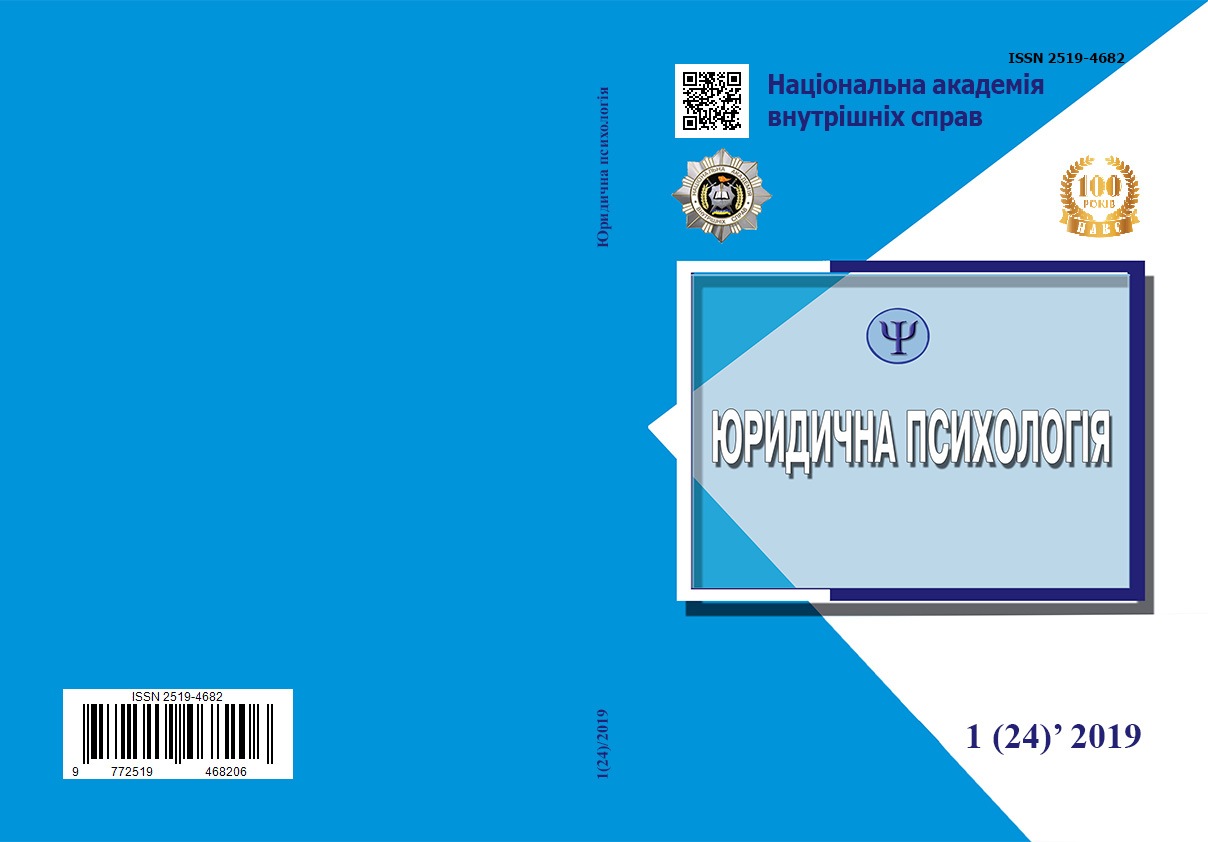Public Consciousness as a Subject of Research of Legal Psychology
Abstract
The purpose article is the result of generalization of scientific views on the essence and constituents of public consciousness. Its place is determined in the subject field of legal psychology. The sources of polarization of the modern Ukrainian society are indicated. A methodological tool is presented by totality of theoretical (analysis, synthesis, comparison, generalization) methods. Theoretical base. Specified, that a civil consensus is absent in relation fundamental values, ideals and aims of society that generates a high conflict and social tension in society today. It predetermines political-legal instability in society. Modern public consciousness in Ukraine is characterized the subzero degree of trust population to the state institutes of power, in particular, judicial branch, ignoring legal methods of decision conflicts, predominance of emotional regulators in politic-legal behavior. Scientific novelty. The theoretical basic concept of public consciousness are presented. They consist the system of views, interests and values; they matter very much for understanding connections of the state with its citizens. The basic factors of cross-coupling the psychological-legal phenomena are distinguished in the structure of public consciousness. It is reasonable, that the facts of public knowledge are transformed in the codes of desirable conduct, vision of the due system of psychological-legal and social values. It becomes motive force that sets potential development of productive realities life. Conclusions. Public consciousness is the integral phenomenon, where a theoretical level is represented in the practical system of relations. It comes forward, from one side, by the instrument cognition of social-psychological aspects in realities of existence, from other – in itself serves as a criterion determination levels cognitions of reality, that complemented and fasten gain knowledge. Therefore, changes in public consciousness have dependence not only on the flow of time, but measured by the degree of understanding political-legal and psychological-legal attributes, inherent certain historical to the epoch (to the past and modern). The public norm comes forward as means of expression the proper state of affairs, id est carries in itself potential and requirements that it follows to adhere for an achievement to the consensus in certain society. It can have a display through attitudes, rules, binding overs, prohibitions (legal, religious, mythological, political and others). Accordingly, public consciousness regulates actions and category vehicle thinking of social subjects, behavior of people, estimates their acts. Therefore, an important place in the structure of theoretical level of public consciousness is occupied by a psychological-legal estimation. It represents an idea about the legal and moral values of acts, actions, specifies on their accordance to the operating social norms.
Keywords: public consciousness; Ukrainian society; psychological-legal phenomena; reflection; social values; polarization.
Downloads
Abstract views: 236 PDF Downloads: 244
- Authors reserve the right to authorship of their own work and transfer to the magazine the right of the first publication of this work under the terms of the Creative Commons Attribution License, which allows other persons to freely distribute published work with mandatory reference to authors of the original work and the first publication of an article in this magazine.
- Authors have the right to enter into separate additional agreements on non-exclusive dissemination of the work in the form in which it was published in the journal (for example, to post an article in the institution's repository or to publish as part of a monograph), provided that the link to the first publication of the work in this journal is maintained.
- The journal's policy allows and encourages the posting of articles by authors on the Internet (for example, in electronic storehouses of institutions or on personal websites), both before the submission of this manuscript to the editorial office and during its editorial processing, as this contributes to the creation of a productive scientific discussion and positively affects the efficiency and dynamics of citing the published work.




